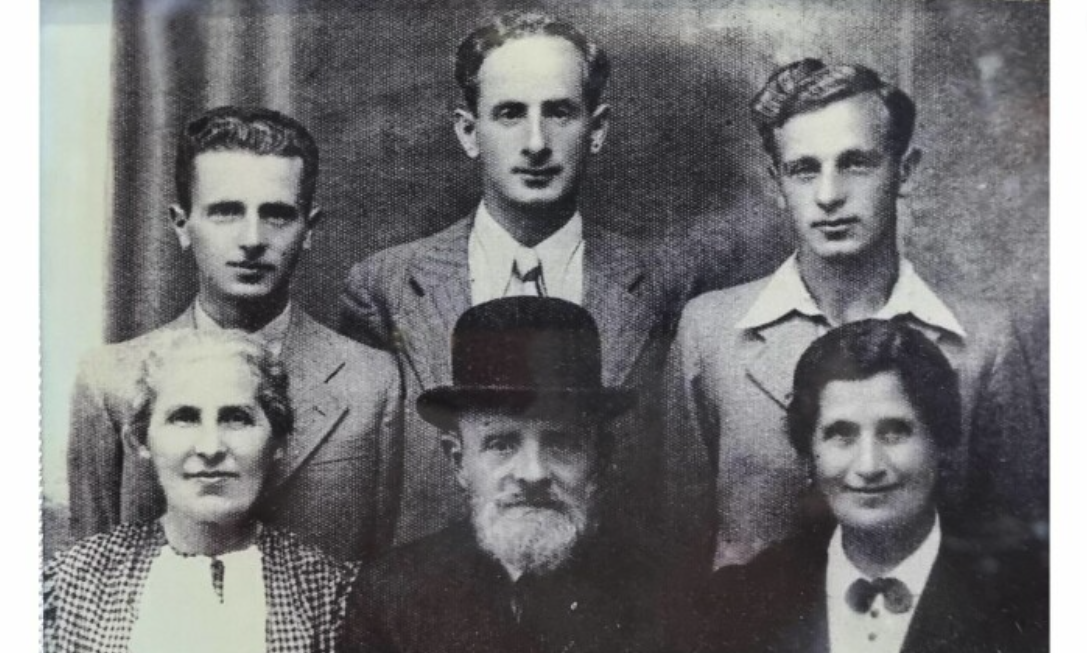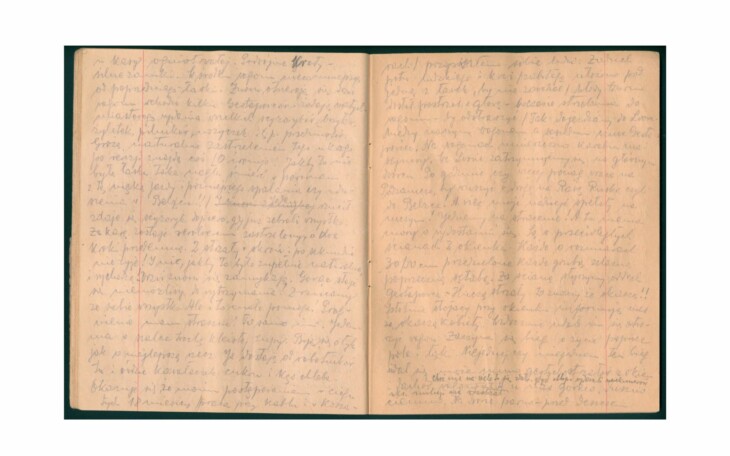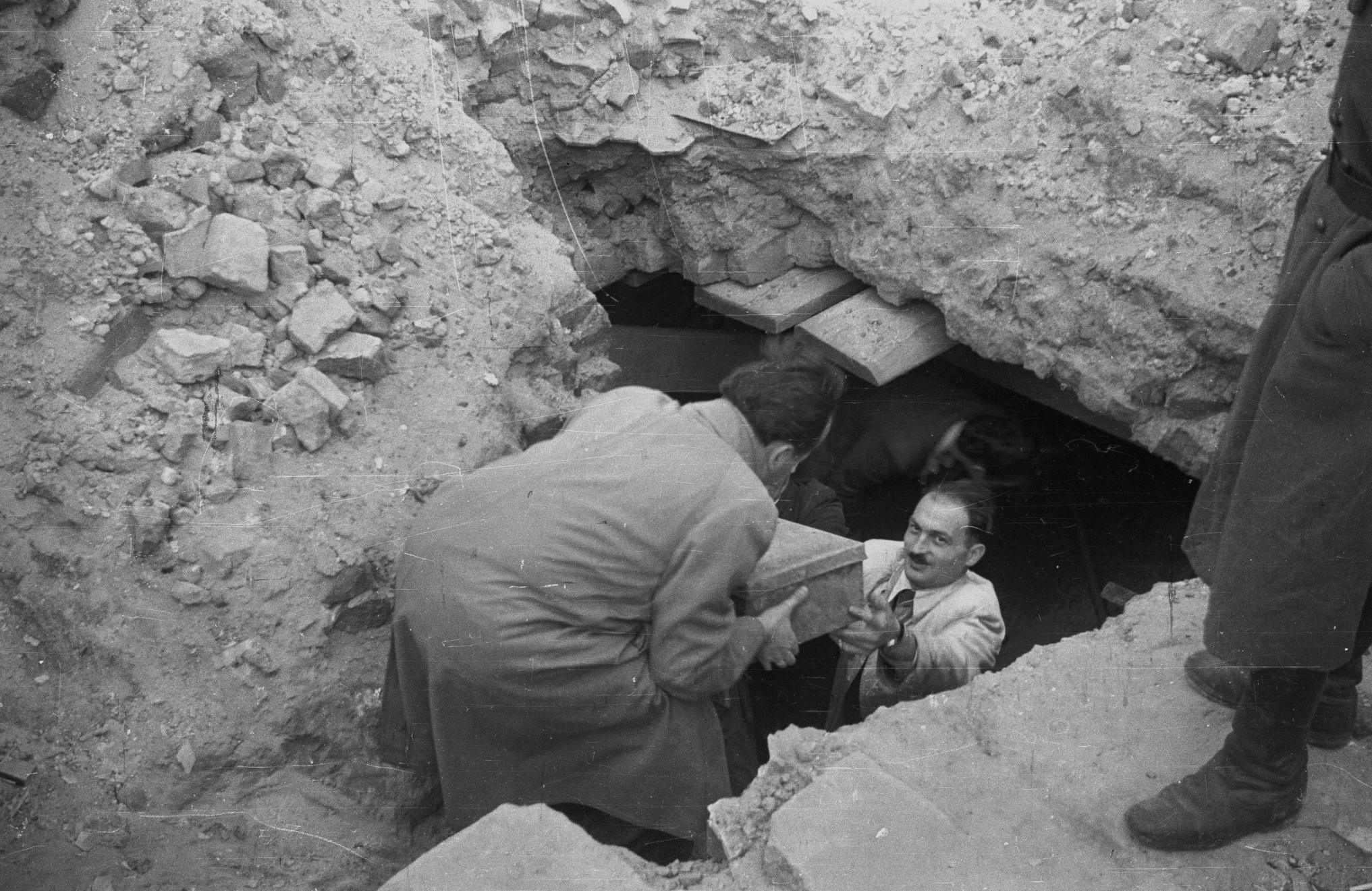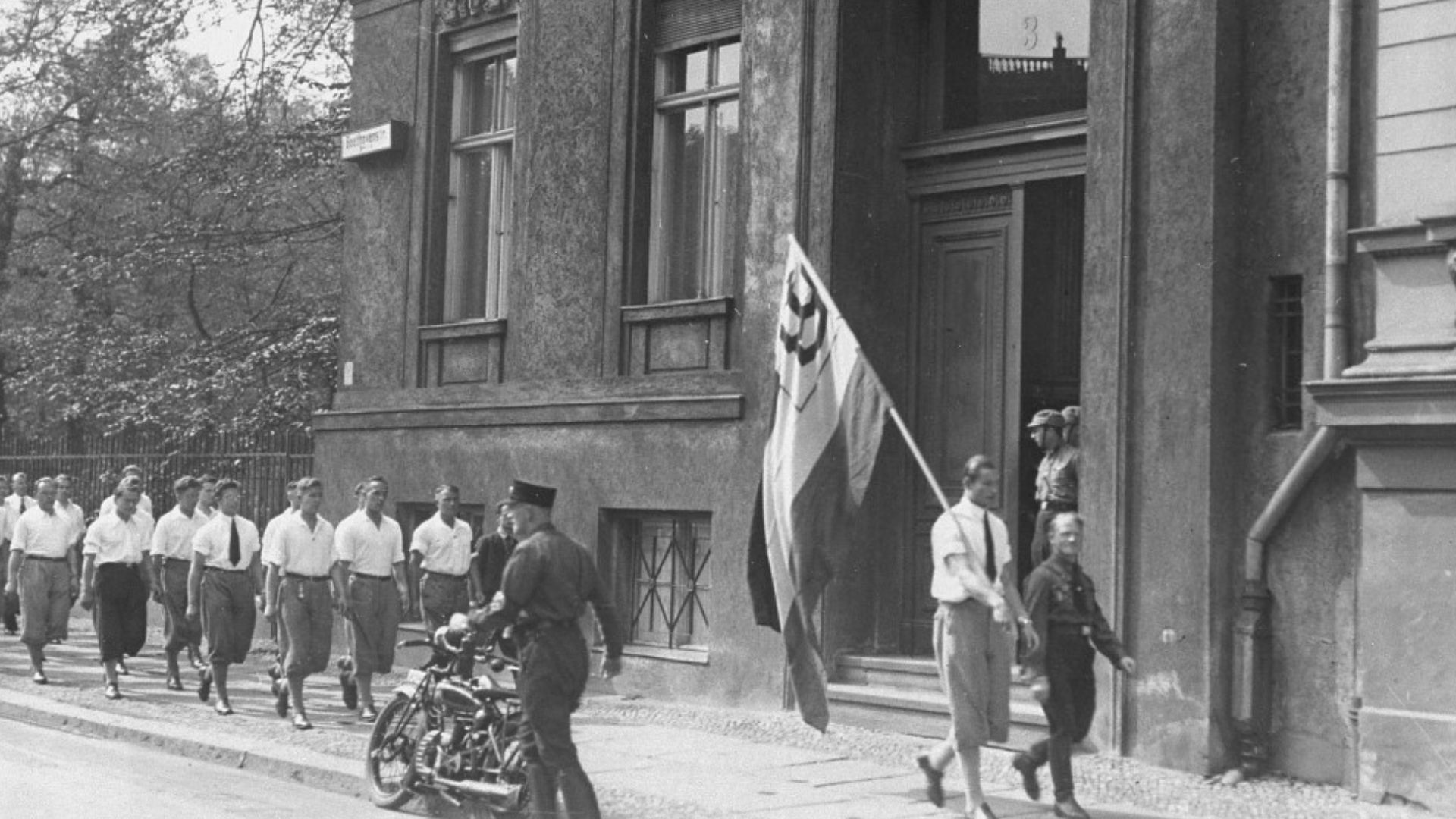From afar, at the edge of the forest, I can hear dogs barking and a big bonfire is burning. My feverish fantasy sees firemen watching over fields adjacent to Belzec, so nobody can escape.
Joseph, who lost his spectacles in the escape, crawled through the brush and bushes. Almost caught by peasants and German soldiers, he ran into the forest. He encountered both hostility and help. A girl gave him food and directions, and he made his way through various towns including Kulikow where he sees the destroyed ghetto. From there he headed to Brzuchowice, to an address he knew. But nowhere is safe.
Today it is Thursday. By my calculations, of which I am not entirely sure, it is our New Year. Memories of years past press in my head. The faces of my dearest ones, so cruelly murdered, appear to me. I feel stronger than ever what I have lost. Am I destined to live to see the enemy’s fall and take my revenge!?
Recapture
…. On Saturday, I find myself near a village the name of which I cannot recall. There I am stopped by a night patrol which seems to have popped out of the ground. They are joined immediately by a group of youth, returning from a wedding party. One of these boors hits me across the face so hard that my cheekbone cracks… They decide to hand me over to the police in the neighbouring village…saying that, if I don’t get executed right away, the best-case scenario is that I would be sent to a criminal camp in Jaryczów Stary which is hell on earth…They lock me up… A woman takes pity on me and offers me a bowl of bortsch and pierogi. It is real manna for me, starved as I am and not used to warm food. Despite the pain caused by every movement of my jaw and opening of my mouth, I swallow everything in a moment…
Josef was handed over to the police, and taken to Jaryczów labour camp where he reunited with others recaptured after escape from Brody ghetto, as well as from trains. One morning there was a mass breakout.
The panic is terrible! I lose my friends… who are unable to keep up with me. Each person chooses his own direction. I throw myself across the wheat field… push forward breathlessly. In a distant corner of the field, I lie down on the ground…They are shooting fiercely, the bullets whistle above and around me… Silence falls. Beautiful Sunday! I lie in the high wheat, slowly recovering from that lightening experience. I am free!
But this sense of liberation was fraught as Joseph headed back to Brody
During that day and a few after I stepped into huts… I would introduce myself as someone working on the road (my patches confirmed that I was a registered Jew and not some partisan, and my appearance would awaken a general pity. Anyway, the peasants in the Jaryczów-Busk region are the personification of goodness. Hardly anybody refused help despite the fear of denunciation and the police… On Tuesday morning I came…across a policeman… my heart fluttering …He believed me …because I was walking on the highway in plain sight and in daylight.
Joseph was stopped by others along his journey, but finally reached Brody, and the ruins of his family home.
I come into my place… The hurricane of vandalism has been through here! Everything is broken…I wade up to my knees in feathers and down of the torn pillows and blankets. They were looking for people, but also for treasures. Apart from my few books and some rags, everything is gone. I lie on the bed of my dear aunt… Some woman is looking for something to take. She approaches my bed, when she notices a pair of sleepy eyes watching her…Screaming, she runs away. Now she will bring the police! I leave the ruin and climb to the next floor… I find a completely rotten bread, my mother’s creation. Broken in body and spirit, I spend the next three days in one of the rooms upstairs. I live on the crust of that rotten bread. During the day I hear shots nearby. It is the Ukrainian militia after all these weeks (five) still searching…I am petrified that they will come upstairs, although I have blocked all the entrances.




